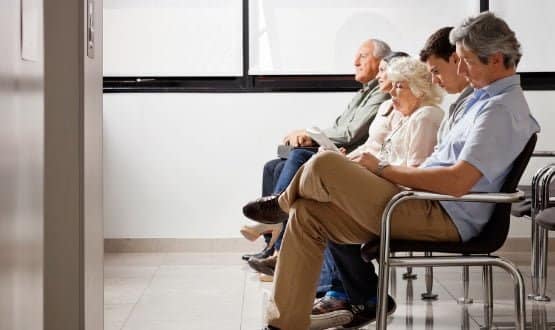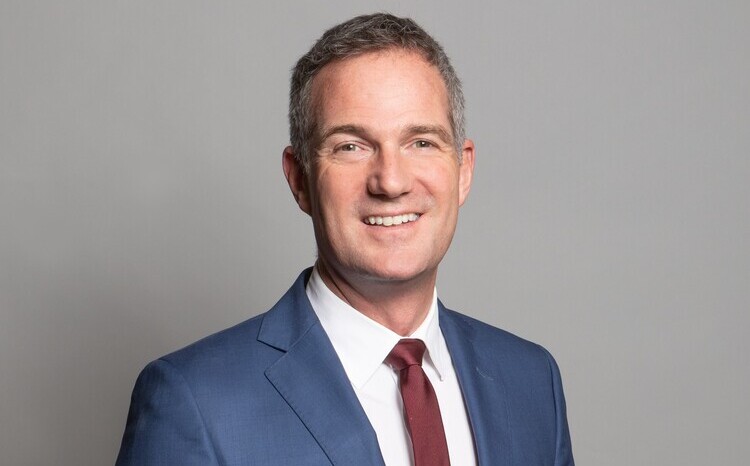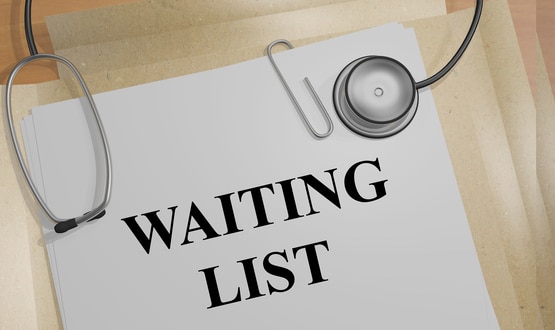Another view: of the A&E “crisis”
- 7 January 2015

I was watching a piece on the news about how busy A&Es are, and the quality of the coverage really annoyed me.
There seems to be a myth at the moment – one that the media seems to be helping to perpetuate – that the reason A&Es are busy is that people can’t get an appointment with a GP.
There no real evidence for this. Indeed, an influential report came out recently that supports my view that this is not an issue. My personal evidence is that as urgent care lead for our old primary care trust we never found this to be the case.
In fact, our local clinical commissioning group recently redid a piece of work that the PCT did. The CCG asked patients attending our A&E why they attended, and in the half day they were there, only three said they couldn’t get an appointment with their GP.
The manager doing the work rang these patients’ practices pretending to be these patients. In two of the cases, the practices gave her an appointment over the phone the same day.
The third surgery appeared confused, as the patient had already rung up – and been given an appointment that afternoon – but had decided to pitch up at A&E first!
Acceptable answers, gullible reporters
One of the things that really annoys me about this angle on A&E problems is that the media tends to imply that GPs are sat about doing nothing when, in reality, we have never been busier or worked harder.
In one of the pieces I watched, the reporter stationed outside of A&E asked two or three people who had attended – all of whom looked remarkably well to my trained eye – why they were there. They duly claimed not to be able to get an appointment.
Now – to my biased ear – it sounded like they were giving a “socially acceptable” reason to be there, instead of telling the reporter the truth. Which might well have been that they hadn’t tried to make an appointment; or possibly that they didn’t know how to.
Or, even worse, perhaps they believed the hype and thought they wouldn’t be able to get to see a GP and didn’t try. What the reporter didn’t do was to challenge them. They just accepted the answers.
Let’s complain together!
I once complained about another story that also drove me insane, and my experience taught me that the BBC has a complaints procedure that is as crazy as the complaints procedure run by the NHS.
It must be being a public body. However, it was clear my email of complaint caused quite a lot of work – just as complaints about the NHS can cause me a lot of work.
So, in a “do unto others as done to myself” attitude, I’m thinking I might make it my mission to make sure that BBC journalists don’t take the easy ride in this election year by complaining. A lot.
But I want to do this in a modern, IT kind of way and build a crowd network of fellow complainers. Everything else seems to be on the net now; donations, voting for X Factor, Kickstarter projects. Why not complaints?
There must be some way of building a crowd, so that if any one of us posts a complaint the others all chip in with it by pressing a ‘like’ button. With 30,000 GPs, their staff and families, I wonder if I can get 50,000 emails flooding in to an editor’s inbox every time they do a poor story about GPs.
Data may be a better way forward…
To pull back from this fantasy slightly, I realise that part of the reason that it is so easy to smear GPs is there seems to be little or no data on GP activity.
It’s all anecdote and rumour, and by their very nature complainers make a bigger noise. The people who harassed Tony Blair on that fateful TV interview about GP appointments were the ones who couldn’t get an appointment with their GP; not the people who had seen a GP and who were, presumably, happy.
My surgery has on average ten doctors working a day. We offer 40 appointments a day each, though we see extra people if needed.
That’s 400+ a day with doctors, never mind the nurses, health care assistants, counsellors and so on. Half of these appointments are pre pre-bookable, half are reserved for people who ring up on the day and say they want to be seen today – even though they are not necessarily the same people as those who need to be seen.
Why is it that, when we are seeing 200 people the same day and making available 200 pre-bookable appointments, people think they can’t get to see us? We literally see everyone who rings – and yes, we offer and sometimes encourage future appointments with their usual doctor.
Let’s collect some facts
There are 30 local practices feeding our local A&E department. There seems to be no data on how much general practice absorbs into itself before A&E gets busy. It may be that numbers seen in GP land double or triple before A&E falls over with a relatively small increase in attendances.
Perhaps the story on the news should be “Galant GPs have – for no extra money (remember A&E gets paid for every patient it sees, while a GPs doesn’t) – seen an extra ten patients today in an attempt to combat the wave of illness that is going round.”
Sadly, it would be hard to stand that up, because it’s amazing on how little hard information we have on primary care contacts. I still get a daily email of patients seen by a secondary care provider and how many hit of those providers their targets – not many! Yet there is no matching primary care data.
Anecdotally I think consultation rates, age of patient seen, sickness of patient seen, and work expected to be done on them have all gone up over the last ten years, while funding hasn’t. But it’s difficult to prove. Perhaps that’s why – as if it was provable they’d have to give us more money.
Well, on behalf of our local GP Federation, I'm about to start collecting data from local practices with a view to answer some of these and other questions.
I have several theories that I’m trying to prove. I suspect we in general practice get busy 24-48 hours before A&E; which might help their workforce planning if true. I suspect that GP holidays and sickness have a much bigger effect than thought.
If our future is integrated organisations, this data may come anyway- it may surprise us, both in what it says and in why we didn’t look at it earlier.


Dr Neil Paul
Dr Neil Paul is a full time partner at Sandbach GPs; a large (22,000 patient) practice in semi-rural Cheshire. He is also one of the directors of 4GPs Ltd. Dr Paul has been involved in primary care IT and health service management for more than ten years in various roles, including PEC member and urgent care lead. In his spare time, he writes medical iPhone software and is a keen photographer.




